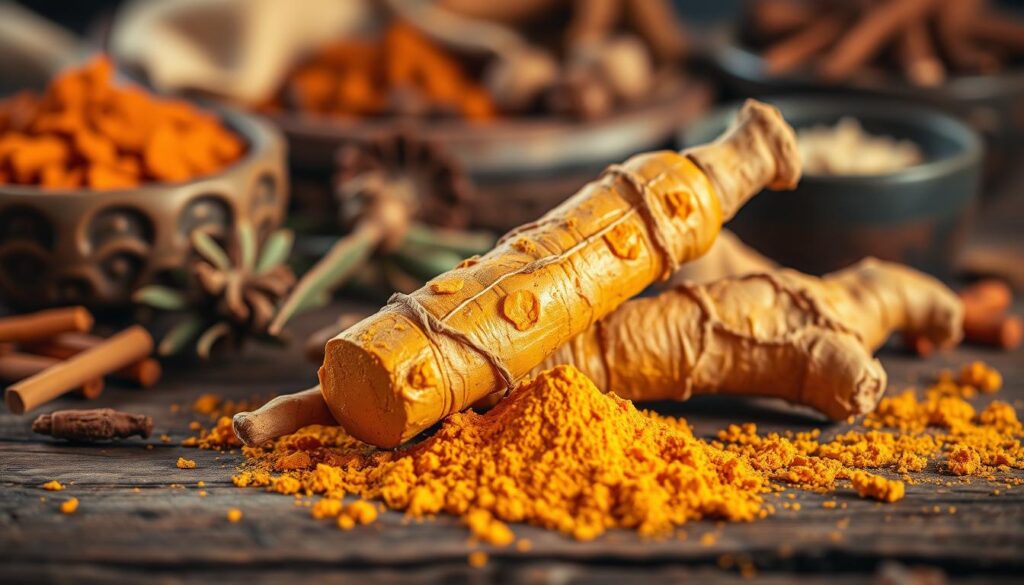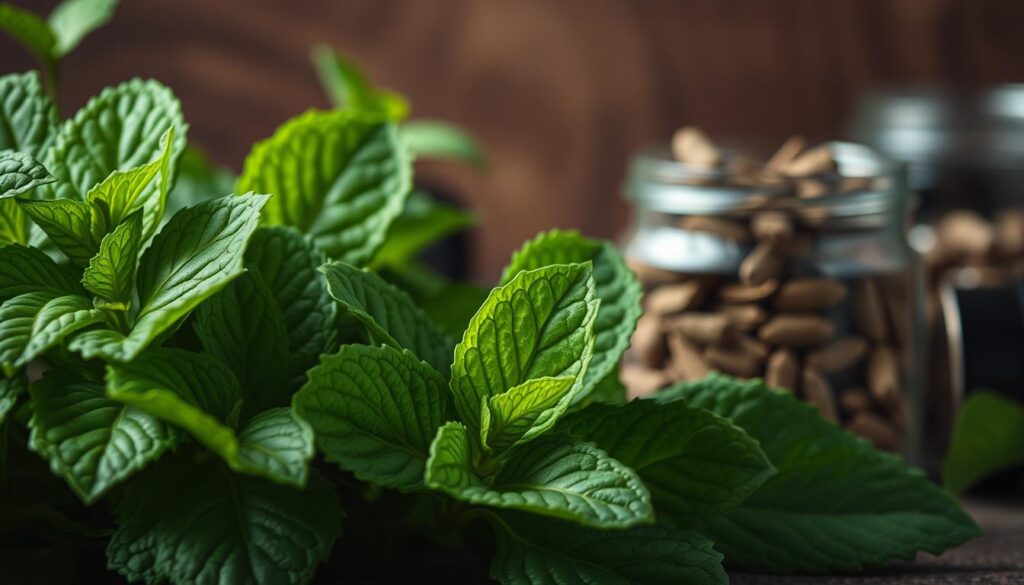10 Proven Natural Remedies for Everyday Ailments
In today’s fast world, many of us are looking for natural remedies to fix everyday problems. The idea of holistic health is about treating the whole person, not just the symptoms. It aims to improve our overall health.
More and more people are seeing the value of natural remedies as good as, or even better than, traditional medicine. This article will show you 10 proven remedies for common health issues.
Key Takeaways
- Discover the benefits of holistic health approaches.
- Learn about 10 effective natural remedies for everyday ailments.
- Understand how to incorporate these remedies into your daily routine.
- Explore the connection between natural remedies and overall wellness.
- Find out how to start using these remedies for a healthier lifestyle.
The Science and Benefits of Natural Remedies
Natural remedies are backed by science and offer great wellness tips for common problems. They have been around for centuries, helping people with various health issues.
How Holistic Health Solutions Work
Holistic health solutions tackle the root cause of health problems, not just the symptoms. They combine natural remedies, lifestyle changes, and alternative therapies. For example, herbal supplements and meditation can boost well-being.
Recent studies confirm the effectiveness of many traditional remedies. Some herbs have anti-inflammatory and antimicrobial properties. This research supports using natural remedies as home treatments.
Advantages Over Conventional Treatments
Natural remedies often have fewer side effects than conventional treatments. They also promote long-term health by boosting the body’s healing.
Fewer Side Effects and Long-Term Benefits
Natural remedies are safer for long-term use because they have fewer side effects. They also offer long-term health benefits, improving overall health and preventing future problems. This makes them a great choice for those looking for lasting wellness tips.
Honey: Nature’s Golden Healer for Respiratory Issues

Honey is more than just a sweetener. It’s a powerful natural remedy for respiratory problems. For ages, it has helped soothe coughs, sore throats, and other respiratory issues. Its unique properties make it effective.
Treating Sore Throats and Persistent Coughs
Honey is known for its ability to treat sore throats and coughs. Its thick texture covers the throat, giving quick relief. Its antimicrobial properties also fight off the causes of discomfort.
Raw Honey vs. Processed Varieties
Not all honey is the same when it comes to health benefits. Raw honey keeps more of its natural nutrients and enzymes than processed honey. Raw honey is full of antioxidants and is better at soothing coughs and sore throats.
Processed honey might have lost some of its natural benefits because of heat treatment. For health benefits, choose raw, unfiltered honey.
Wound Healing Properties
Honey’s antimicrobial properties also make it great for wound care. It forms a protective layer on the skin, helping it heal by keeping it moist.
Application Methods for Different Conditions
For small cuts and scrapes, apply a thin layer of honey. For serious wounds, see a doctor.
| Condition | Application Method | Frequency |
|---|---|---|
| Sore Throat | 1 tsp in warm water or tea | 2-3 times a day |
| Cough | 1-2 tsp directly | As needed, up to 3 times a day |
| Minor Wounds | Apply thin layer directly | 1-2 times a day |
Recommended Dosages and Precautions
Honey is generally safe, but use it in moderation. Don’t give honey to children under one year because of botulism risk. Adults can safely take 1-2 tablespoons a day for health benefits.
In conclusion, honey is a versatile natural remedy. It helps with respiratory issues, wound healing, and overall health. By choosing the right honey and using it correctly, you can benefit from its healing properties.
Ginger Root: Powerful Natural Remedy for Digestive Ailments
Ginger root is a key player in holistic health for digestive issues. It’s versatile and effective, making it a favorite in home treatments.
Alleviating Nausea, Motion Sickness, and Morning Sickness
Ginger helps with nausea, motion sickness, and morning sickness. It does this by affecting the digestive and nervous systems.
Fresh vs. Dried Ginger Preparations
Fresh and dried ginger have their uses. Fresh ginger is great in teas and cooking. Dried ginger is often in capsules and powder.
Benefits of Fresh Ginger:
- More potent flavor and aroma
- Can be used in a variety of culinary dishes
- Effective in teas and infusions
Benefits of Dried Ginger:
- Longer shelf life
- Easier to consume in capsule form
- Concentrated ginger flavor
Reducing Muscle Pain and Inflammation
Ginger has compounds like gingerol that fight inflammation. These help reduce muscle pain and inflammation. It’s great for athletes and those with hard jobs.
Ginger Compress and Massage Oil Recipes
Ginger can be used in compresses and massage oils. A ginger compress is made by soaking fresh ginger in hot water and applying it to sore spots.
| Recipe | Ingredients | Instructions |
|---|---|---|
| Ginger Compress | Fresh ginger, hot water, cloth | Steep ginger in hot water, wrap in cloth, apply to affected area |
| Ginger Massage Oil | Ginger essential oil, carrier oil (coconut or olive oil) | Mix a few drops of ginger essential oil with carrier oil, massage onto affected area |
Safe Consumption Guidelines
Ginger is usually safe, but too much can cause heartburn or stomach upset. Pregnant women should talk to their doctor before using ginger.
Adding ginger root to your health routine can help with digestion and improve overall health.
Turmeric: Ancient Spice for Modern Pain Relief

Turmeric is more than a spice in your kitchen. It’s a powerful natural remedy for pain. For centuries, it has been used to treat many ailments. Its active compound, curcumin, is known for its anti-inflammatory and pain-relieving effects.
Fighting Arthritis and Joint Inflammation
Turmeric is great for arthritis and joint inflammation. It reduces pain and improves joint function. Research shows it can be as good as some drugs without the side effects.
Combining with Black Pepper for Enhanced Absorption
For better turmeric benefits, take it with black pepper. Piperine in black pepper boosts curcumin absorption by up to 2,000%. This simple mix increases turmeric’s effectiveness.
Boosting Immune Function During Illness
Turmeric also boosts your immune system. Its antimicrobial properties fight infections. Golden milk, made with turmeric, milk, and spices, is a popular drink for its immune-boosting and soothing effects.
Golden Milk and Other Therapeutic Preparations
Golden milk is just one way to use turmeric. You can also try turmeric tea, capsules, or creams. Turmeric’s versatility makes it easy to find a method that works for you.
Dosage Recommendations for Different Conditions
The right turmeric dose depends on the condition. For general wellness, 1-2 teaspoons a day is good. For arthritis, you might need more, but always check with a doctor.
In summary, turmeric is a great natural remedy for pain and boosting your immune system. By using it wisely, including with black pepper, you can improve your health and wellness.
Apple Cider Vinegar: Versatile Home Treatment for Multiple Conditions
Apple cider vinegar has been around for centuries. It’s a natural remedy for many health problems. It can help with digestion and skin issues.
Balancing Blood Sugar and Aiding Weight Management
Apple cider vinegar helps control blood sugar and aids in weight loss. The acetic acid in it slows down starch digestion. This reduces blood sugar spikes after eating.
Proper Dilution Methods: To avoid stomach problems, mix apple cider vinegar with water. Use 1-2 tablespoons in 8 ounces of water.
Proper Dilution Methods
- Start with a small dose (1 teaspoon) to assess tolerance.
- Gradually increase the dose as needed and tolerated.
- Always dilute in water or another liquid.
Addressing Skin Conditions and Fungal Infections
Apple cider vinegar fights off skin problems and fungal infections. It balances the skin’s pH and reduces inflammation.
Topical Applications and Soaks
For skin issues, use apple cider vinegar on the skin. Mix it with water as a final rinse after shampooing. It’s also good for fungal infections.
Potential Side Effects and Contraindications
Apple cider vinegar is usually safe but can cause problems if not diluted right. It might lead to digestive issues, tooth damage, and interact with some medicines.
| Condition | Recommended Use | Precautions |
|---|---|---|
| Blood Sugar Control | 1-2 tbsp diluted in water | Monitor blood sugar levels closely |
| Weight Management | 1 tbsp diluted in water before meals | Avoid excessive consumption |
| Skin Conditions | Topical application, diluted 1:1 with water | Test on a small area first |
Peppermint: Cooling Relief for Headaches and Digestive Issues

Peppermint is a versatile herb that helps with headaches, digestive issues, and clearing sinuses. Its cooling effect and refreshing smell make it a natural remedy for many health problems.
Easing Tension Headaches and Migraines
Peppermint essential oil can help with tension headaches and migraines. The menthol in peppermint relaxes muscles and improves blood flow.
Essential Oil Application Techniques
To use peppermint essential oil, mix it with a carrier oil and massage it on your temples or neck. You can also add a few drops to a warm bath for relaxation.
Soothing IBS and Digestive Discomfort
Peppermint tea is great for soothing irritable bowel syndrome (IBS) and other digestive issues. The menthol in peppermint calms the muscles in the digestive tract.
Tea Preparation for Maximum Benefit
To make peppermint tea, steep fresh or dried peppermint leaves in hot water for 5-10 minutes. Strain and drink. You can add honey to taste.
Clearing Sinuses and Respiratory Congestion
Peppermint’s decongestant properties make it effective for clearing sinuses and relieving respiratory congestion. Inhaling peppermint vapor can help loosen mucus and reduce congestion.
Peppermint is a natural remedy with many benefits. It can be used daily to ease headaches, soothe digestive issues, or clear sinuses. Peppermint is a versatile herb that offers relief.
Aloe Vera: Natural Healing for Skin Ailments

For generations, aloe vera has been cherished for its ability to soothe and heal skin. It’s effective and gentle, making it good for many skin types.
Treating Sunburns, Minor Burns, and Rashes
Aloe vera gel cools sunburns, minor burns, and skin rashes. It reduces heat and inflammation, helping skin heal faster.
Extracting and Preserving Fresh Aloe Gel
To get aloe gel, cut open the leaf and scoop out the clear gel. Make sure to handle the leaf cleanly. Store the gel in an airtight container in the fridge to keep it potent.
Internal Benefits for Digestive Health
Aloe vera is good for more than just skin. It helps with digestive health too. Drinking aloe vera juice can soothe the digestive tract and ease IBS symptoms.
Safe Consumption Guidelines
Start with small amounts of aloe vera juice to see how your body reacts. Choose a high-quality, safe aloe vera juice for drinking.
Combining with Other Ingredients for Enhanced Effects
You can mix aloe vera with other natural ingredients for better results. For example, aloe vera gel and honey make a soothing mask that heals and moisturizes.
Adding aloe vera to your health routine can help with skin issues and digestive health. Its natural healing and versatility make it a great addition to home treatments.
Chamomile: Gentle Wellness Tips for Anxiety and Sleep Problems
Chamomile is a natural remedy for anxiety and sleep issues. It has been used for centuries to help people relax and sleep better.
Promoting Relaxation and Combating Insomnia
Chamomile is great for those with insomnia and anxiety. It has a compound called apigenin. This compound can help reduce anxiety and make you sleepy.
Creating the Perfect Therapeutic Tea
To enjoy chamomile’s benefits, make a tea. Use 1-2 teaspoons of dried flowers in boiling water. Let it steep for 5-10 minutes. Strain and drink 30 minutes before bed for a good night’s sleep.
Soothing Digestive Cramping and Irritation
Chamomile also helps with digestive problems. It can ease cramps, diarrhea, and other stomach issues because of its anti-inflammatory properties.
Topical Applications for Skin Inflammation
Applying chamomile to the skin can reduce inflammation and irritation. You can use it in creams or with cooled tea bags for different skin problems.
Safe Usage for Children and During Pregnancy
Chamomile is usually safe, but talk to a doctor before using it, mainly for kids and pregnant women. Drinking it in tea is okay, but don’t overdo it.
Benefits of Chamomile at a Glance:
| Benefit | Description |
|---|---|
| Promotes Relaxation | Helps in reducing anxiety and stress |
| Improves Sleep | Aids in combating insomnia |
| Soothes Digestive Issues | Relieves cramps, diarrhea, and gastrointestinal discomfort |
| Topical Skin Benefits | Reduces inflammation and irritation |
Eucalyptus: Powerful Respiratory Relief from Nature
Eucalyptus has been used for centuries to help with breathing problems. It’s a natural remedy found in many homes. It helps with various respiratory issues.
Clearing Congestion from Colds and Allergies
Eucalyptus oil is great for clearing cold and allergy congestion. Its compounds break down mucus, making breathing easier.
Steam Inhalation Methods
Using eucalyptus oil in steam inhalation is very effective. Add a few drops to hot water and inhale the steam. It targets congestion in the nose and sinuses.
Antimicrobial Properties for Infections
Eucalyptus fights infections with its antimicrobial properties. It helps reduce microbes in the respiratory tract. This is good for fighting off infections.
Chest Rubs and Diffuser Blends
Eucalyptus oil is good in chest rubs and diffusers. In chest rubs, it eases congestion. In diffusers, it cleans the air and helps you breathe better.
Important Safety Considerations
It’s important to use eucalyptus oil safely. Dilute it with a carrier oil for skin use to avoid irritation. Don’t swallow it. Pregnant women and people with health issues should talk to a doctor before using it.
Adding eucalyptus to your holistic health routine can help with breathing problems. It promotes overall well-being.
Epsom Salt: Mineral-Rich Solution for Body Aches and Stress
Epsom salt has been used for centuries to help with muscle tension and stress. It’s full of magnesium sulfate, which your skin absorbs during a bath. This offers many health benefits.
Relieving Muscle Tension and Joint Pain
Magnesium in Epsom salt helps relax muscles and reduce swelling. Taking a bath with Epsom salt can ease muscle cramps, spasms, and joint pain. This is true for arthritis or after hard workouts.
Therapeutic Bath Recipes
Here’s a great bath recipe: Mix 2 cups of Epsom salt, 1 cup of baking soda, and 10 drops of lavender essential oil. Soak for 20 minutes to relax and ease muscle pain.
Detoxification Benefits for Overall Wellness
Epsom salt also helps detoxify by improving blood flow and removing toxins. Its magnesium reduces swelling and boosts detox processes.
Foot Soaks for Specific Conditions
Foot soaks with Epsom salt are great for foot pain or fungal infections. Mix 1/2 cup of Epsom salt with warm water and soak for 15-20 minutes. It can help with swelling and pain.
Dr. Jane Smith, a wellness expert, says, “Epsom salt baths are a simple way to relax and ease muscle tension.”
Frequency Recommendations for Regular Use
For the best results, use Epsom salt baths 2-3 times a week. But, if you have health issues, talk to a doctor about how often is right for you.
Adding Epsom salt to your routine can help with body aches and stress. It’s a natural way to improve your overall well-being.
Conclusion: Creating Your Holistic Health Toolkit
We’ve looked at the top 10 natural remedies for everyday problems. Now, it’s time to build your holistic health toolkit. By adding these home treatments to your daily routine, you can improve your overall wellness.
Start by getting the basics like honey, ginger, turmeric, and apple cider vinegar. These items can help with many health issues. For instance, honey can ease a sore throat, and ginger can help with nausea and digestion.
Think about what you need and your health goals as you build your toolkit. If you often feel muscle tension, try Epsom salt baths. For respiratory problems, eucalyptus oil can be a big help.
Using these natural remedies with a healthy lifestyle can boost your health and strength. Holistic health is about more than just treating symptoms. It’s about connecting deeply with your body and nature.
Start your holistic wellness journey today. Explore these home treatments and find what works best for you.






